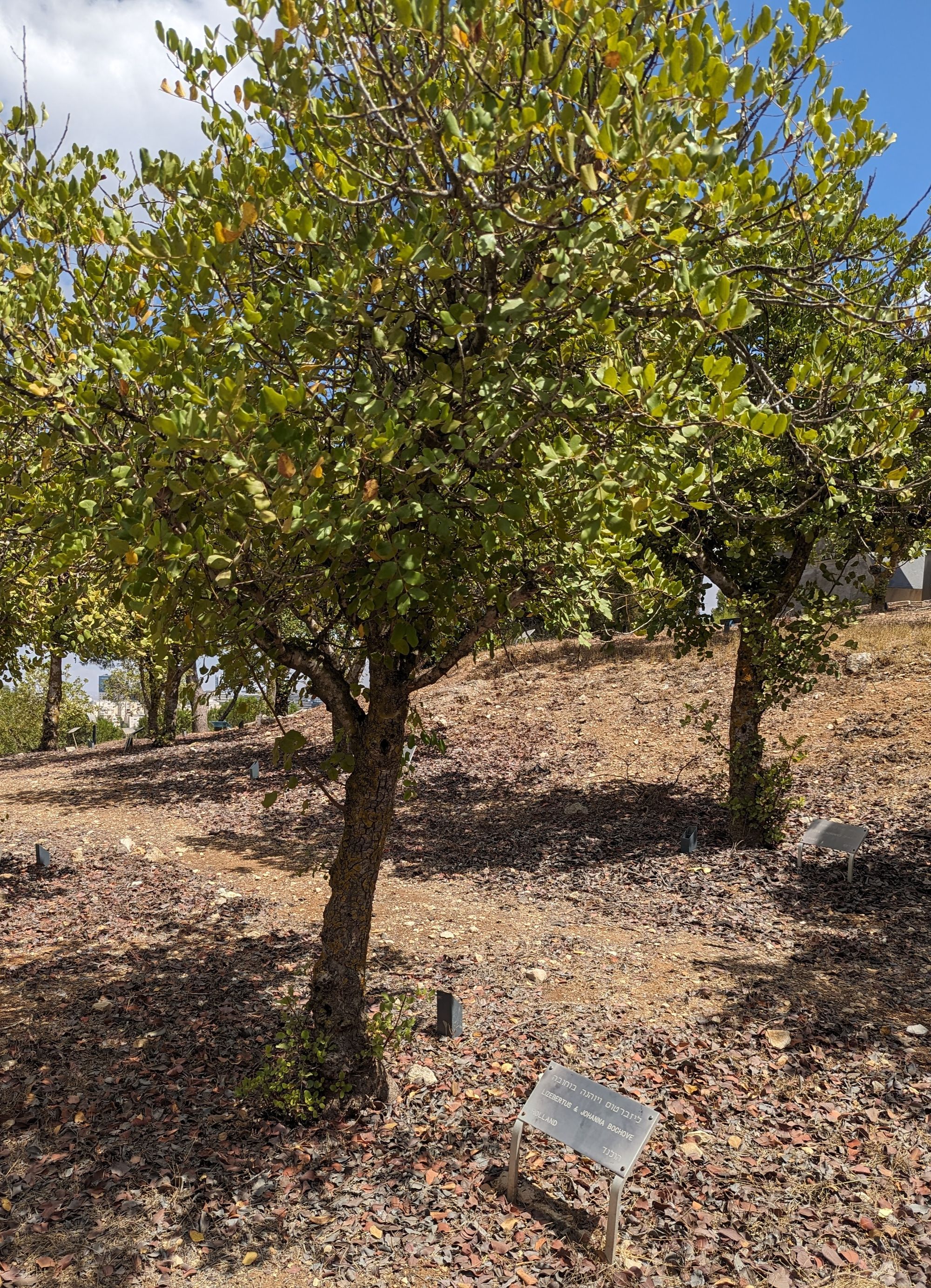The Tree in Jerusalem

The fat Nazi sat on a box in the attic and continued to interrogate our Opa (grandfather) while the soldiers searched the small drug store and house above it. He barked his questions in German and Opa pretended not to understand and replied only in his native Dutch. The soldiers emptied cabinets and opened boxes looking for ration cards and other illegal materials. They lifted rugs and knocked on the walls looking for a hiding place that might conceal Jews. If the Jews were found, they would be shipped to the death camps while Opa and his family would immediately be arrested and likely face their own execution. The search continued for hours.
Our own search began yesterday, almost 80 years after the German soldiers searched Opa's house located in Huizen, a small town in the northern area of Holland. We were blessed with the opportunity to travel to Israel for the first time and include a visit to the Yad Vashem World Holocaust Remembrance Center in Jerusalem. We made our way through the museum with our headset giving us an audible narrative to enhance what we viewed in the displays. The crowded, but quiet visitors wound their way through the rooms starting with pre-war anti-semitism, the rise of the Nazis, and the camps. The journey ended with an incredible display of book volumes filled with the names of many of the 6 million Jewish victims. Informative, moving, and depressing.
Our then two-year-old Uncle Erik screamed continuously from the point the soldiers first arrived, which helped Oom Karel, Gesina, and Wim retreat to their hiding place behind the false wall in the attic. But not Sarah. As a woman with very Jewish facial features, she sat at the table and refused to go to the hiding place. Of course, the German officer quickly approached her and screamed, "You! You are a Jew!" Sarah immediately jumped up, and while knocking over her chair and pounding on the table, spat back - "HOW DARE YOU CALL ME A JEW!" Sarah's defiant rebuke fooled him. The officer quickly retreated before ordering Opa up to the attic.
After visiting the museum, we made our way to the trees planted for the Righteous Among the Nations. Over 40 years ago, our Opa was recognized for his bravery in hiding Jews in Holland during the war. A tree was planted in his and his wife Annie's honor on the hill next to the museum. Armed with only a 40-year-old picture of Opa receiving honor at the planting of the tree, we started our search. We walked along the path of trees, and then off the path and up a steep hill. A section was closed for construction, but spotting more marked trees beyond the fence, we went around and continued reading the plaque at each tree. But there were hundreds of trees and finding Opa's didn't seem likely.
The fat Nazi sat on that box in the attic for hours while the house was unsuccessfully searched. But the box itself was never opened. How fortunate because the box contained thousands of Dutch flags Opa managed to obtain in anticipation of the expected liberation by Allied forces. If hiding Jews and holding illegal ration cards wasn't enough risk, possessing a single Dutch flag was illegal and could result in arrest and prison.
With little luck finding the tree on our own, we returned to the information desk for help. With Opa's full name, the information desk printed us a map with a section of the hill highlighted. "You will need to go around the hill the long way to reach that section - the construction will prevent you from taking the direct route," he told us. With the map in hand, we took the long way back around the hill and soon found Opa's tree.
On the day the end of the war was announced, a school teacher entered the small drug store looking for paper the children could use to make Dutch flags. She was surprised as the box was brought down from the attic and opened to reveal what was inside. The small town of Huizen was soon decorated with Dutch flags!
Over a period of three years during the war, 36 Jewish people found refuge for various periods of time in Opa's house in Huizen. The false wall and the hiding place in the attic were never discovered. Opa faced incredible struggles and danger and ultimately lost his wife Annie because of health issues caused by the war. But they never considered themselves heroes. Opa just insisted it was the right thing to do.
Greater love has no one than this, that someone lay down his life for his friends. (John 15:13)